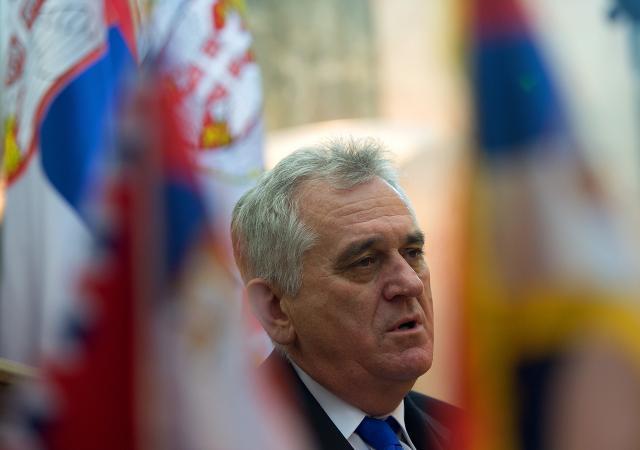Source: Danas, Tanjug

(Tanjug, file)
"We hear assurances from Europe that it (Kosovo) is not a condition. If this is a condition for our membership in the EU, they don't have to accept us, but at least we will regulate the state in the 34 (accession negotiations) chapters. But if each chapter will say that this and the other issue will be resolved in accordance with the Pristina constitution and legislation - then it will be very difficult to find our way in all the chapters," Nikolic said.
According to him, the EU, as in the case of the migrant crisis, is showing how fragile it is when it come to relations between Serbia and Pristina.
"It shows, on the one side, a remarkable influence on Serbia, and on the other powerlessness in front of Pristina's demands, and that is what puzzles and worries me," said Nikolic.
Speaking about chapter 35, that relates to Kosovo, he stressed that "we do not know how chapter 35 is practically envisages, nor what the closing of the chapter with a legally binding agreement will look like."
"I have not seen it the draft, nor have I heard it in any conversation with (EU) commissioners, who said that awaits us and that we should be ready for it, and that Europe cannot give up on it - because it is the request of Germany," he said.
The Community of Serb Municipalities in Kosovo, said the president, should be formed. "That has been signed in Brussels, but now Pristina sees it is in fact a path towards the Serbs having their own whole within their territory, and many rights, and that's where the claims that it is not in accordance with their constitution come from."
"What shall we do now, having signed that agreement in Brussels? If the Pristina side puts it under a question mark, why wouldn't the Serb side do the same, that is - how we will continue to negotiate if there is no community of Serb municipalities? It will be very difficult and there Aleksandar Vucic will be put to a great test," said Nikolic.
Asked whether he believes "the Special Court for Kosovo" - i.e., for war crimes committed by the KLA - will "really try war criminals," Nikolic said:
"I believe it will judge, but if you ask me whether it will pass verdicts and issue decisions and penalties, I'm not too convinced about that. I've never seen a court that judged Serbs, Albanians, Croats by the same criteria, the same yardstick. After all, that is absolutely crystal clear by the number of convictions and the length of sentences - so I'm not certain."
He added that what compels him to think this way is "the tragic fate of Oliver Ivanovic" - the Serb politician from northern Kosovo who was recently found guilty of war crimes. Nikolic said he thought that "someone in the court which was formed in The Hague will have to create some kind of balance, so some Albanians will have to be convicted, or maybe, in order to appease the Albanians, Ivanovic has been convicted without evidence, and the judge said there was no evidence."
According to him, in the case of Ivanovic "Serbia can raise its voice, talk to all countries in the world, with friends and organizations and with those who are less of a friend to us."
"But to change the (court's) decision - hardly. Serbia failed to change any decision that was against it and its people, and this will be no different," said Nikolic.
Speaking about the planned early parliamentary elections, he said that April 24 would be "a very acceptable date," and that PM Vucic would not resign, but would rather ask that the National Assembly be dissolved.
No comments:
Post a Comment